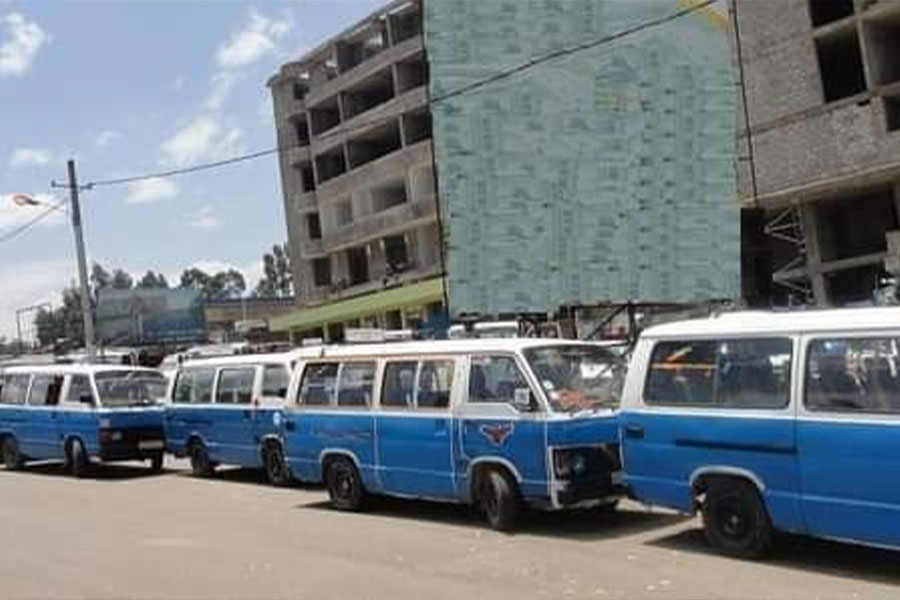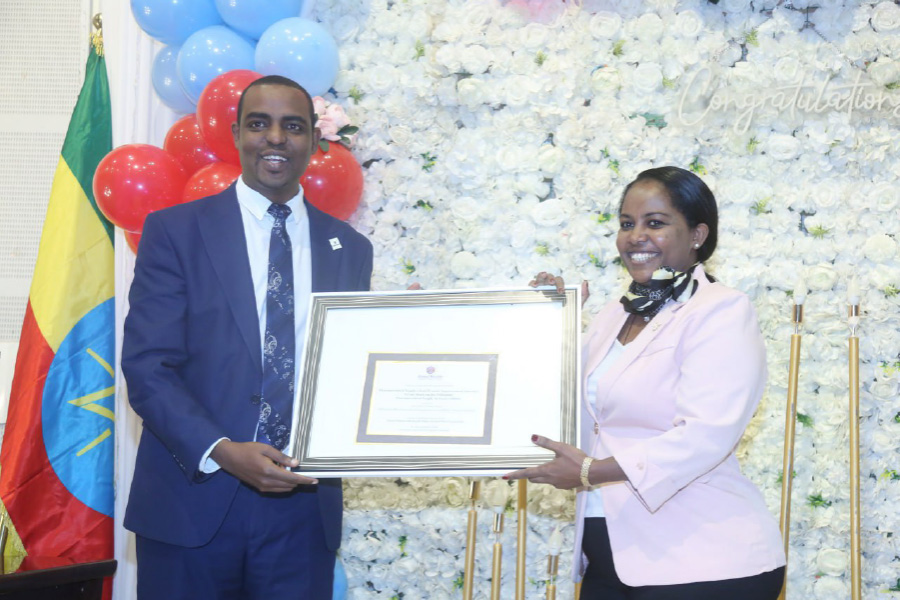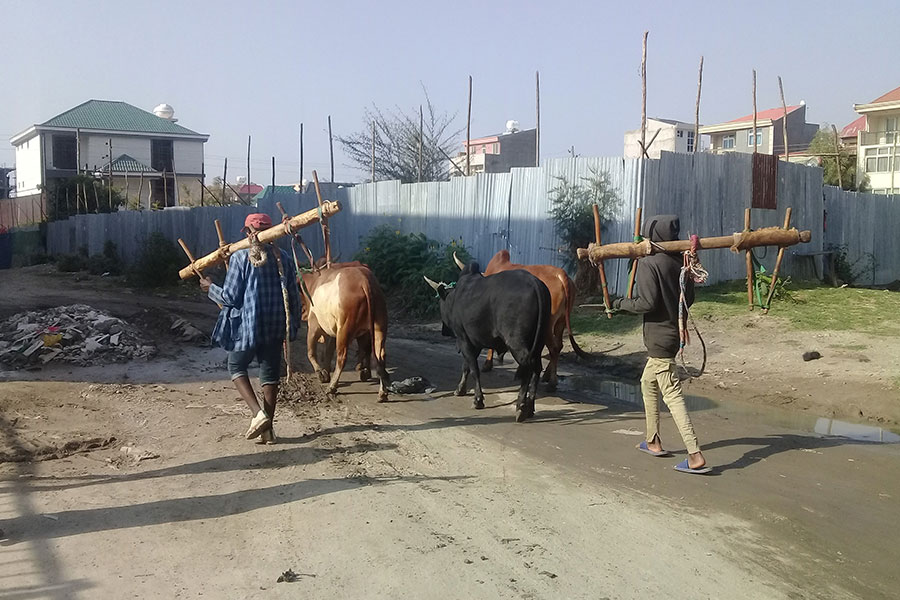
Radar | Jul 20,2019
Nov 29 , 2020
By MAYA MISIKIR ( FORTUNE STAFF WRITER )
Eleven water wells that are expected to supply an additional 33,000 cubic metres of water to the capital are scheduled to start operations this coming January. The projects were awarded to four local and foreign companies.
Initiated by the Addis Abeba City Water & Sewerage Authority, the water well drilling project is included under the second phase of the project for the current fiscal year. The first phase marked the addition of 20,000 cubic metres of water from nine wells to the water grid.
Launched at the beginning of the fiscal year, the entire project has an allocated budget of two billion Birr and a total of 55 wells under its wing. Upon conclusion of the project at the end of the year, the Authority aims to provide a total of 100,000 cubic metres of additional water supply to the city, which has a daily demand of 1.1 million cubic metres.
The projects under the second phase are located in Gulele, Arada and Yeka districts. The wells will have depths ranging from 300m to 500m. CGCOC Group, G6 Trading, Amhara Water Works Construction Enterprise, and Mulugeta Mekonnen Melesse Water Well Drilling were awarded contracts to carry out the drilling.
Mulugeta Mekonnen Melesse Water Well Drilling, which won one lot consisting of three sites in the project, is mobilising the necessary machinery to start the work, according to Fikrealem Ketema, the company's drilling project manager.
The firm, which had previously carried out water well drilling for bottled water companies like Gift and Daily Water, has been given two months to finalise the first two sites with an additional two months allotted for the remaining site.
"It is enough time for us to finish as the wells we're drilling are 300m deep," said Fikrealem. "This is assuming that there are no extraordinary hydrological or formation complications."
The sites for the wells have already been finalised, and right of way issues with the local communities have been solved, according to Serkalem Getachew, communication affairs support process leader at the Authority.
"Demarcation is a central challenge for water well projects," she said. "We've also encountered theft of electric cables and other necessary equipment."
In the past month alone, the Authority has reported the theft of miscellaneous items including water pipe maintenance equipment worth 23,000 Br from its storage facilities.
New road projects also tend to cut existing water lines during construction, according to Serkalem.
Currently, the city sources its water from across 200 wells and the Legedadi, Gefersa and Dire water reservoirs. The reservoirs and wells have a combined production capacity of 574,000 cubic metres of water, with the majority sourced from the latter.
The production capacity of wells and reservoirs suffers by 30,000 cubic metres due to power fluctuations, which affect production and distribution, according to Serkalem.
In addition to this, nearly 40pc is wasted along the way for various reasons.
The initiative to dig wells is only a temporary solution to address the city's needs until bigger projects are set in motion, added Serkalem.
"Water wells aren't sustainable," she said. "They'll eventually run out."
The long-term plan of the Authority will be to incorporate the second phase of the Legedadi Reservoir, which is expected to generate 86,000 cubic metres of water, according to her.
Though wells are no permanent solution, experts like Andualem Tilahun, a hydraulics engineer with over 13 years of experience, believe that the project undertaken by the Authority is sensible.
"The priority should be the needs of the city's inhabitants, who should have potable water provided to them by any means," he said.
The option of using wells to supply the water needs of the city is also a comparatively less costly venture as it requires only an initial investment as groundwater doesn't have many impurities, according to Andualem.
"There might be some physical impurities as well as mineral concentrations, but that requires minimal work," he said. "Surface water sources like rivers, on the other hand, require a substantial amount of capital to build and then incur ongoing high costs for the treatment centres."
Due to impurities emanating from various waste, surface water will require capital for initial structure construction that may entail dams, as well as for the building of treatment centres and the necessary chemicals for the treatment, he explained.
PUBLISHED ON
Nov 29,2020 [ VOL
21 , NO
1074]

Radar | Jul 20,2019

Radar | Apr 13,2025

Advertorials | Dec 01,2024

Radar | May 08,2021

Radar | Jun 18,2022

Radar | Jan 23,2021

Fortune News | Jul 30,2022

Radar | May 12,2024

My Opinion | Jul 13,2025

Agenda |

Dec 22 , 2024 . By TIZITA SHEWAFERAW
Charged with transforming colossal state-owned enterprises into modern and competitiv...

Aug 18 , 2024 . By AKSAH ITALO
Although predictable Yonas Zerihun's job in the ride-hailing service is not immune to...

Jul 28 , 2024 . By TIZITA SHEWAFERAW
Unhabitual, perhaps too many, Samuel Gebreyohannes, 38, used to occasionally enjoy a couple of beers at breakfast. However, he recently swit...

Jul 13 , 2024 . By AKSAH ITALO
Investors who rely on tractors, trucks, and field vehicles for commuting, transporting commodities, and f...

Nov 1 , 2025
The National Bank of Ethiopia (NBE) issued a statement two weeks ago that appeared to...

Oct 25 , 2025
The regulatory machinery is on overdrive. In only two years, no fewer than 35 new pro...

Oct 18 , 2025
The political establishment, notably the ruling party and its top brass, has become p...

Oct 11 , 2025
Ladislas Farago, a roving Associated Press (AP) correspondent, arrived in Ethiopia in...